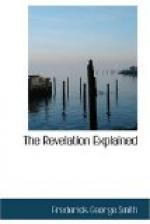4. And it was commanded them that they should not hurt the grass of the earth, neither any green thing, neither any tree; but only those men which have not the seal of God in their foreheads.
5. And to them it was
given that they should not kill them, but
that they should be tormented
five months: and their torment was
as the torment of a scorpion,
when he striketh a man.
6. And in those days
shall men seek death, and shall not find
it; and shall desire to die,
and death shall flee from them.
7. And the shapes of
the locusts were like unto horses prepared
unto battle; and on their
heads were as it were crowns like
gold, and their faces were
as the faces of men.
8. And they had hair
as the hair of women, and their teeth were
as the teeth of lions.
9. And they had breastplates,
as it were breastplates of iron;
and the sound of their wings
was as the sound of chariots of
many horses running to battle.
10. And they had tails
like unto scorpions, and there were
stings in their tails:
and their power was to hurt men five
months.
11. And they had a king
over them, which is the angel of the
bottomless pit, whose name
in the Hebrew tongue is Abaddon, but
in the Greek tongue hath his
name Apollyon.
The symbols of this trumpet are of a very peculiar character and peculiarly combined. They are not drawn entirely from the natural world, showing that we are not to look for their fulfilment in political events alone; neither are they drawn from human life in any such way as to indicate events in the religious history of the church. The leading characters in it, however, are living, active agents of such a destructive nature as to entitle them to the designation of a woe.
The first object presented in the vision is a “star” fallen to the earth. Our translation conveys the idea that this star was in the act of falling; but in the original it is different, being there represented as having fallen, its dejection from heaven to earth being complete. The only place that it appeared in view was on the earth, and there it is described as fallen. A star is a symbol either of a civil ruler or of a religious teacher, the symbols in connection deciding whether it is set in the political or the ecclesiastical firmament. But this was not such a star as He who walketh in the midst of the golden candle-sticks holdeth in his right hand, but it was a fallen star, indicating that it was the propagator of a false faith.




